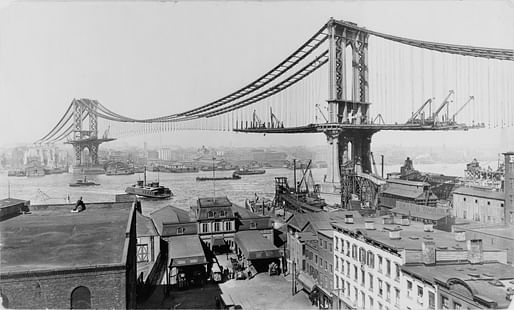

In 2011, the New York Public Library established an official unit for digital experimentation—NYPL Labs. Over the six years that followed, what began as a small research and development outfit for special digital projects grew into a visionary think-and-do tank for making the library’s two centuries of collections digital and usable for the years to come. A hybrid team of technologists, librarians, and designers would start to assemble the building blocks of an urban memory infrastructure. — Urban Omnibus
Shannon Mattern, associate professor of media studies at The New School, and Ben Vershbow, founder of NYPL Labs, discuss the recent digitalization efforts undertaken by the New York Public Library system as it works to turn the library's "vast collections into usable data, connecting maps, photographs, menus and community memories, NYPL Labs created a series of multilayered projects that point the way to a new information ecosystem."
In this fascinating and thought-provoking conversation, Mattern and Vershbow touch on the library's efforts to stitch together insurance maps to create scrollable, Google Maps-like resources, the NYPL's store of digitized and translated restaurant menus, and the New York City tree census, among many topics.
Describing the fundamental role libraries play in preserving cultural and spatial memories, Vershbow says, "Libraries fill a need for historic preservation, a memory function. And I think that a community without access to its history is sort of living in a state of amnesia. With all of this very turbulent, often inequitable, urban change taking place, having access to history is incredibly important. Whether people are able to meaningfully access that or leverage that involves issues of literacy and access and empowerment, but preserving the historical record and making it accessible is vital for enabling informed approaches to the present and the future."
No Comments
Block this user
Are you sure you want to block this user and hide all related comments throughout the site?
Archinect
This is your first comment on Archinect. Your comment will be visible once approved.